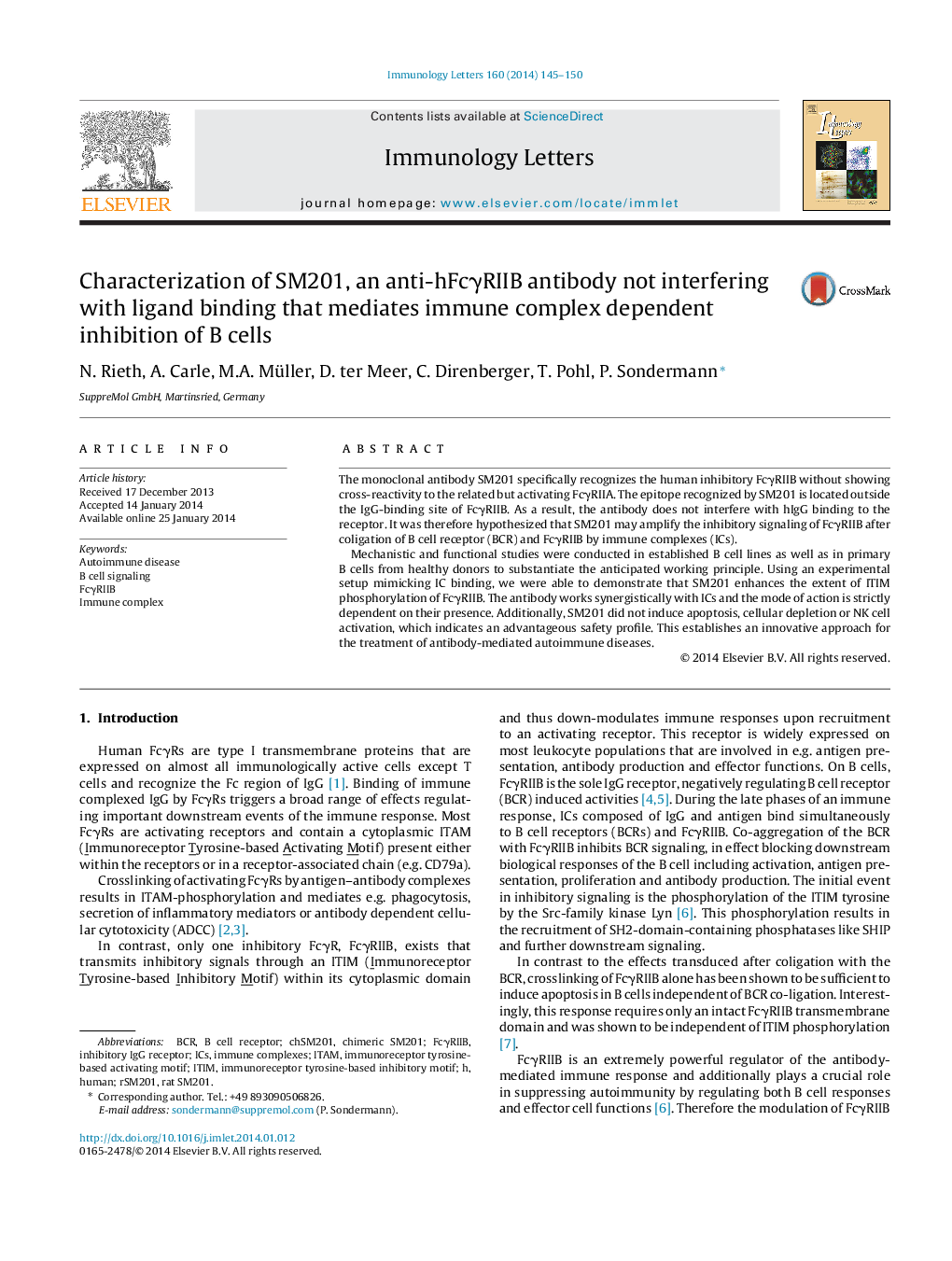| Article ID | Journal | Published Year | Pages | File Type |
|---|---|---|---|---|
| 3355429 | Immunology Letters | 2014 | 6 Pages |
•SM201 binds specifically to FcγRIIB without interfering with ligand binding.•SM201 works synergistically with immune complexes after BCR and FcγRIIB coligation.•It enhances the inhibitory signaling cascade in B cells.•It does not activate NK cells, deplete B cells or induce apoptosis.•SM201 might be a novel tool for treatment of antibody-mediated autoimmune diseases.
The monoclonal antibody SM201 specifically recognizes the human inhibitory FcγRIIB without showing cross-reactivity to the related but activating FcγRIIA. The epitope recognized by SM201 is located outside the IgG-binding site of FcγRIIB. As a result, the antibody does not interfere with hIgG binding to the receptor. It was therefore hypothesized that SM201 may amplify the inhibitory signaling of FcγRIIB after coligation of B cell receptor (BCR) and FcγRIIB by immune complexes (ICs).Mechanistic and functional studies were conducted in established B cell lines as well as in primary B cells from healthy donors to substantiate the anticipated working principle. Using an experimental setup mimicking IC binding, we were able to demonstrate that SM201 enhances the extent of ITIM phosphorylation of FcγRIIB. The antibody works synergistically with ICs and the mode of action is strictly dependent on their presence. Additionally, SM201 did not induce apoptosis, cellular depletion or NK cell activation, which indicates an advantageous safety profile. This establishes an innovative approach for the treatment of antibody-mediated autoimmune diseases.
